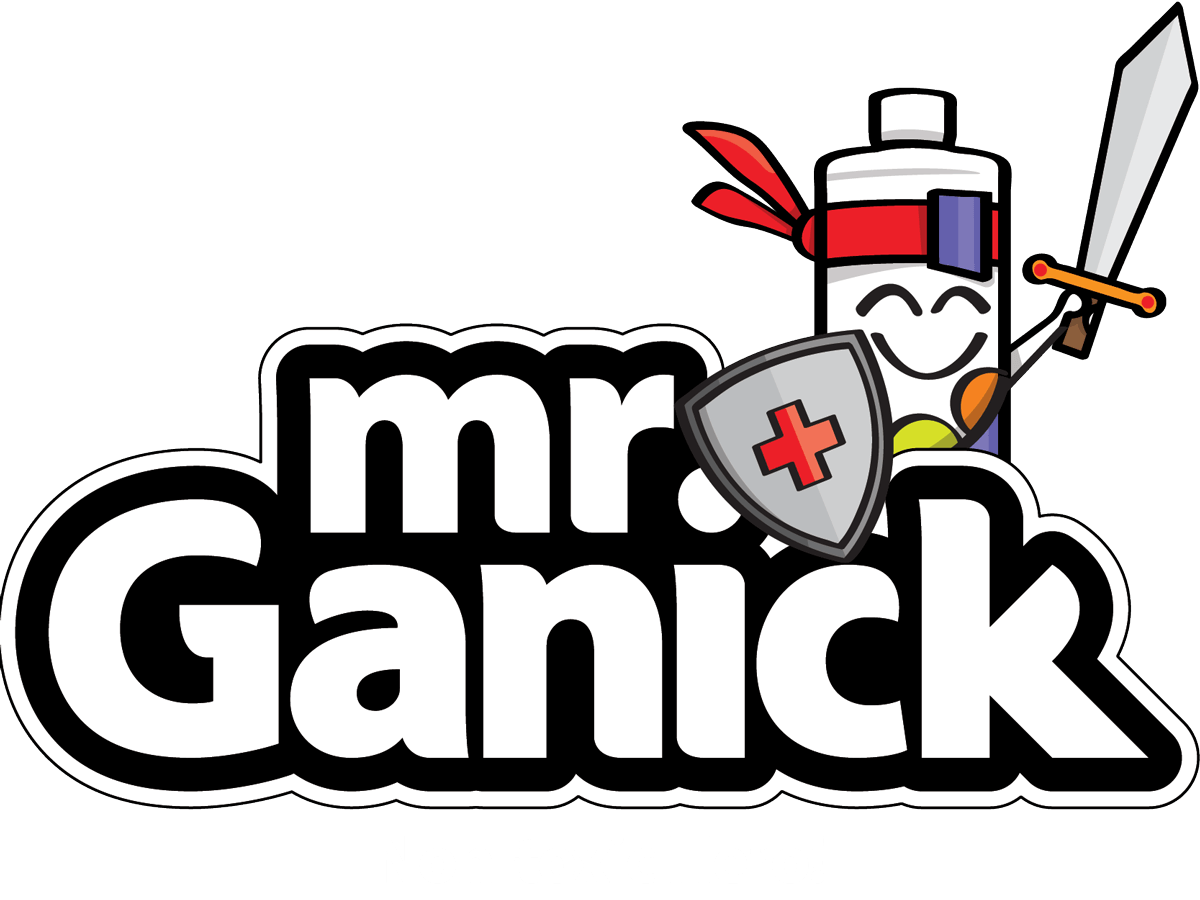
Grow Healthy, Naturally —
With Organic Fertilizer for Plants
When it comes to growing strong, healthy plants, fertilizer plays a big role. It’s like food for your garden — giving your soil and crops the nutrients they need to thrive. But not all fertilizers are the same. Many chemical fertilizers may boost growth quickly, but they often leave behind harmful residues that pollute our water, soil, and air. Over time, they can also damage the soil itself, making it harder for plants to grow well in the long run.
That’s why more gardeners — from backyard growers to organic farmers — are turning to organic fertilizers. At Mr. Ganick, we’re proud to offer plant food that’s not just effective, but safe for your health, your soil, and the planet.
“In fact, only 30% to 50% of the fertilizer applied is utilized by plants. The remaining components seep into the soil, then enter groundwater and evaporate into the air.”
Danso & Eskew, 1984
Safe, Natural, and Backed by Trusted Standards
Our Mr. Ganick Organic Fertilizer is made with 100% natural ingredients and developed by our in-house R&D team of organic gardening and farming experts. Every batch is tested and certified by Malaysia’s SIRIM and the European Union’s Ecocert standards — so you can feel confident about what you’re putting into your soil.
From leafy vegetables to flowering plants and fruit trees, we have specialized formulas for different plant types. These fertilizers don’t just help your plants grow — they improve your soil health, protect your roots, and build up long-term fertility without synthetic chemicals.
Why Choose Organic Fertilizer Over Chemical Ones?
Here’s something surprising: most chemical fertilizers don’t get fully used by plants — up to 70% can leak into the ground or escape into the air. This doesn’t just waste nutrients; it adds pollution to our environment, from acid rain to greenhouse gases.
On the other hand, organic fertilizers work in harmony with nature. They release nutrients slowly, improve soil texture, and feed helpful microbes in the soil. That means better long-term results — not just for your plants, but for the whole ecosystem. And best of all? You can grow your own food without worrying about chemical residues. As an organic fertilizer supplier, we are commited to providing high-quality products to help your plants thrive.
The Mr. Ganick Difference:
Healthier Soil, Stronger Plants
What makes Mr. Ganick different isn’t just what we put in — it’s what we believe in. Our fertilizers contain over 50% organic matter, giving your soil the nutrients and structure it needs to stay soft, fertile, and alive with microbial life.
Long-term use helps restore soil health, protects plant roots, and creates a thriving, balanced growing environment. So whether you’re planting vegetables for your family or flowers for beauty, you’re also doing something good for the Earth — and for future generations.
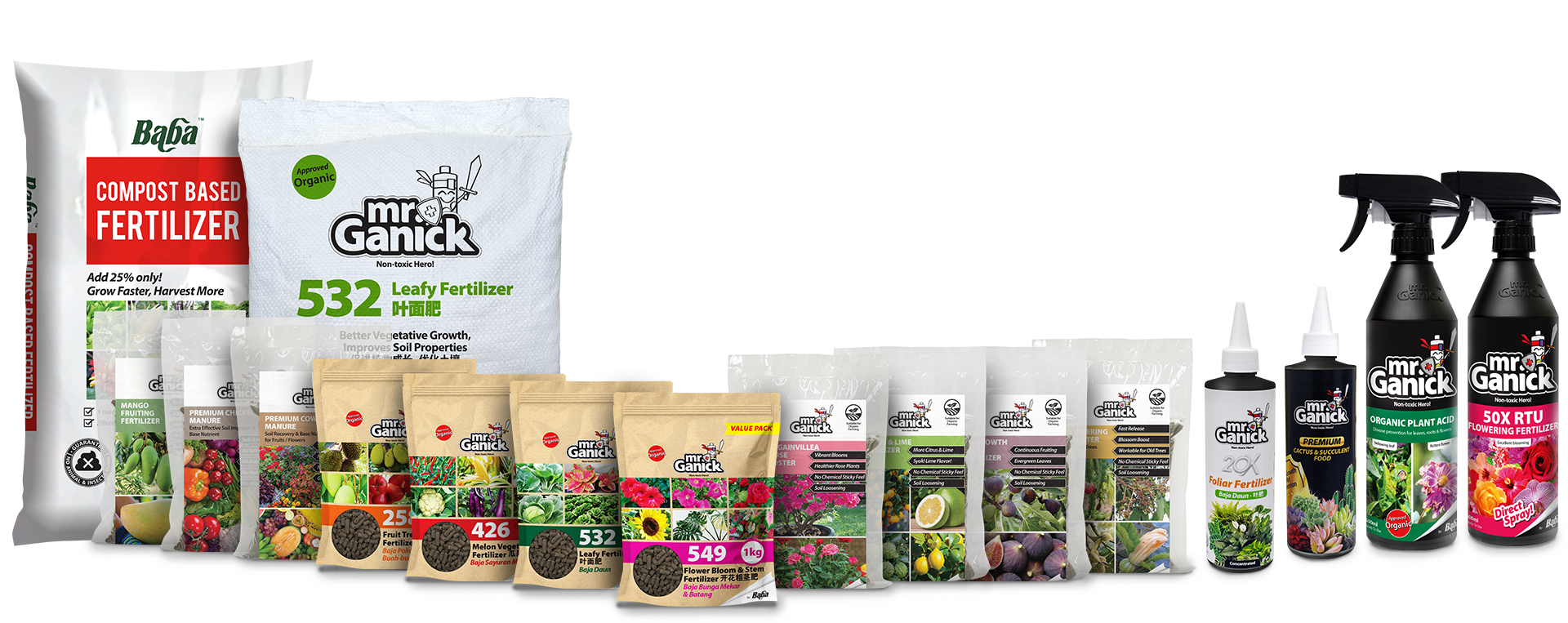
International organic certification, safe & effective!
Certified Safe, Backed by Science
Our Mr. Ganick Organic Fertilizer is made with 100% natural ingredients and developed by our in-house R&D team of organic gardening and farming experts. Every batch is tested and certified by Malaysia’s SIRIM and the European Union’s Ecocert standards — so you can feel confident about what you’re putting into your soil.
From leafy vegetables to flowering plants and fruit trees, we have specialized formulas for different plant types. These fertilizers don’t just help your plants grow — they improve your soil health, protect your roots, and build up long-term fertility without synthetic chemicals.
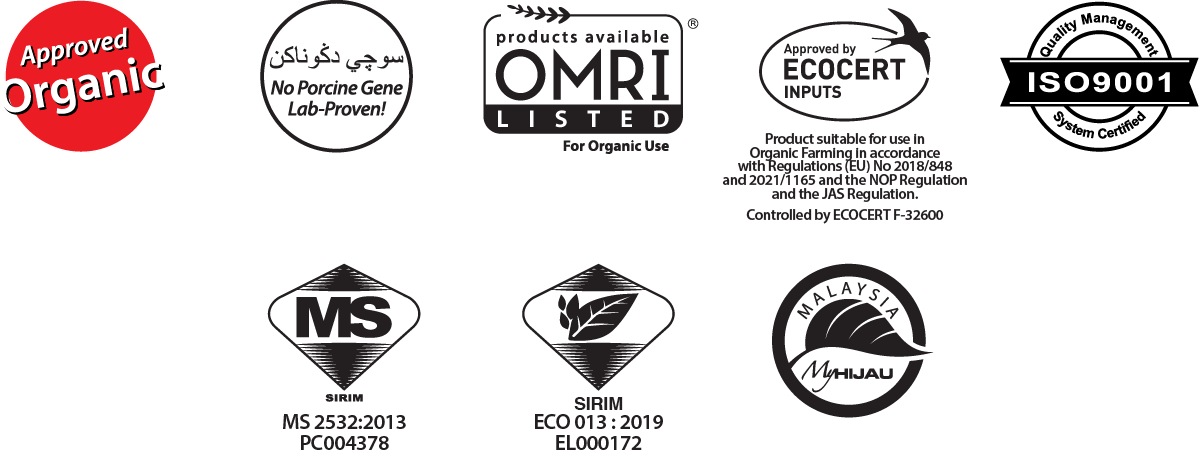
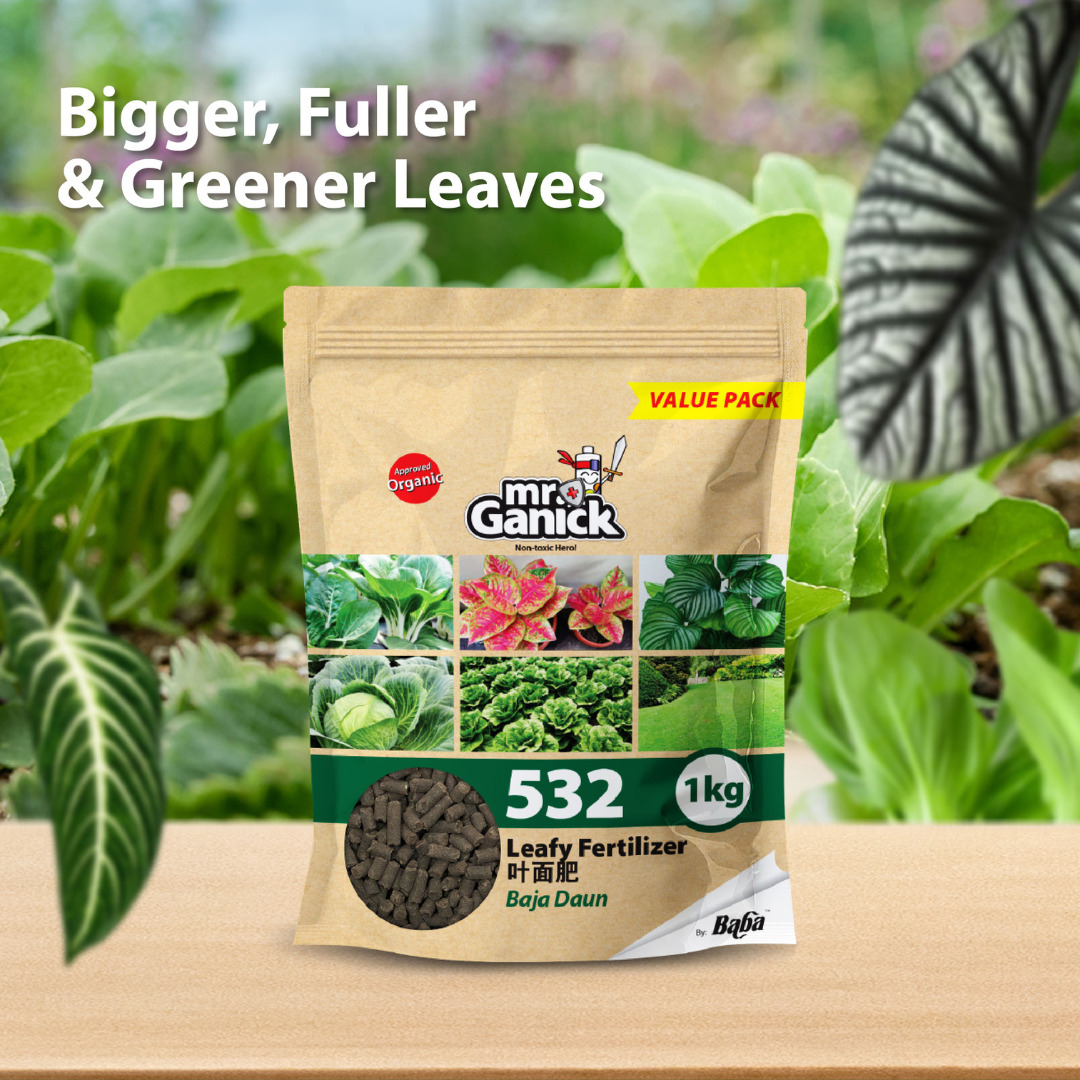
532 Organic Leafy Fertilizer
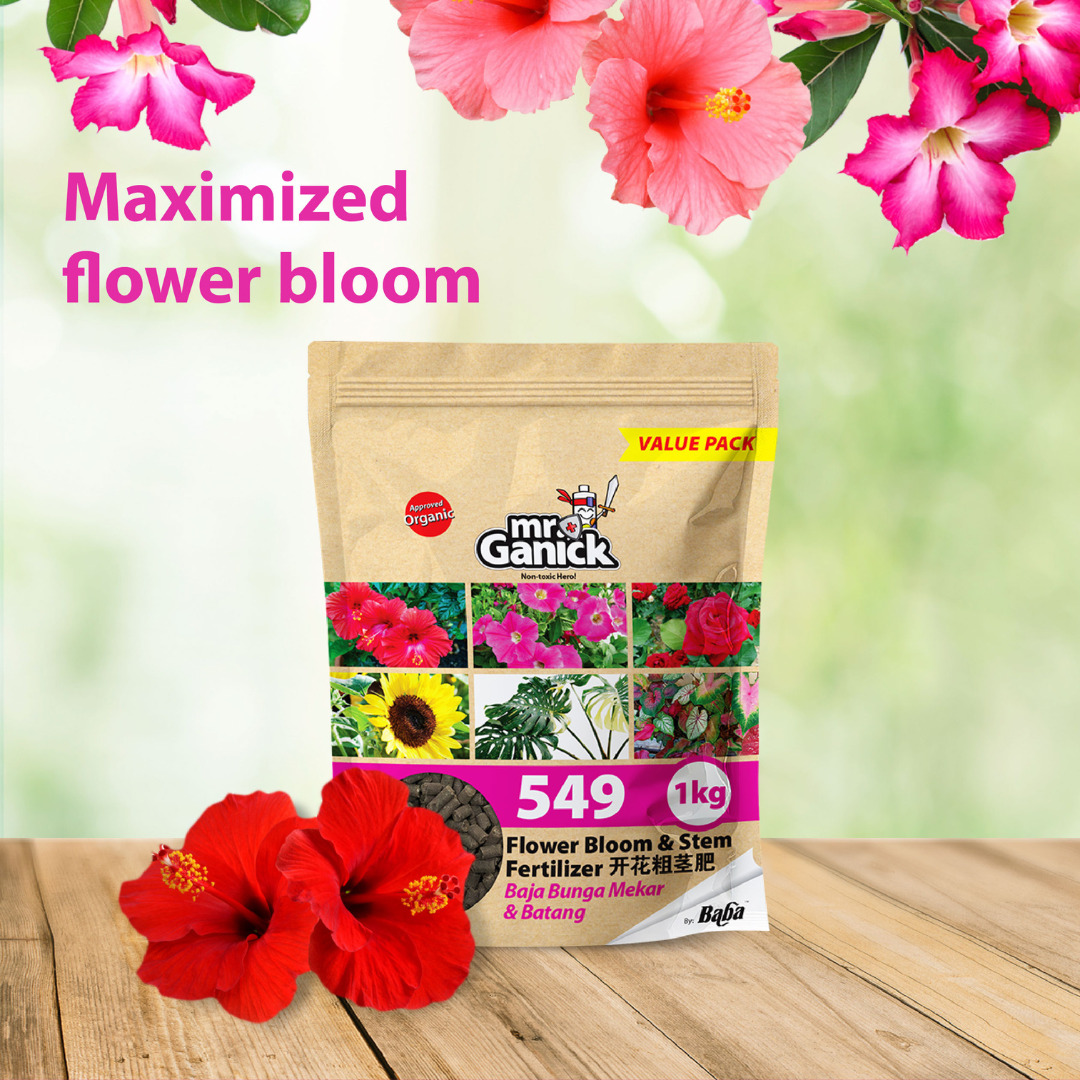
549 Organic Flower Bloom Fertilizer
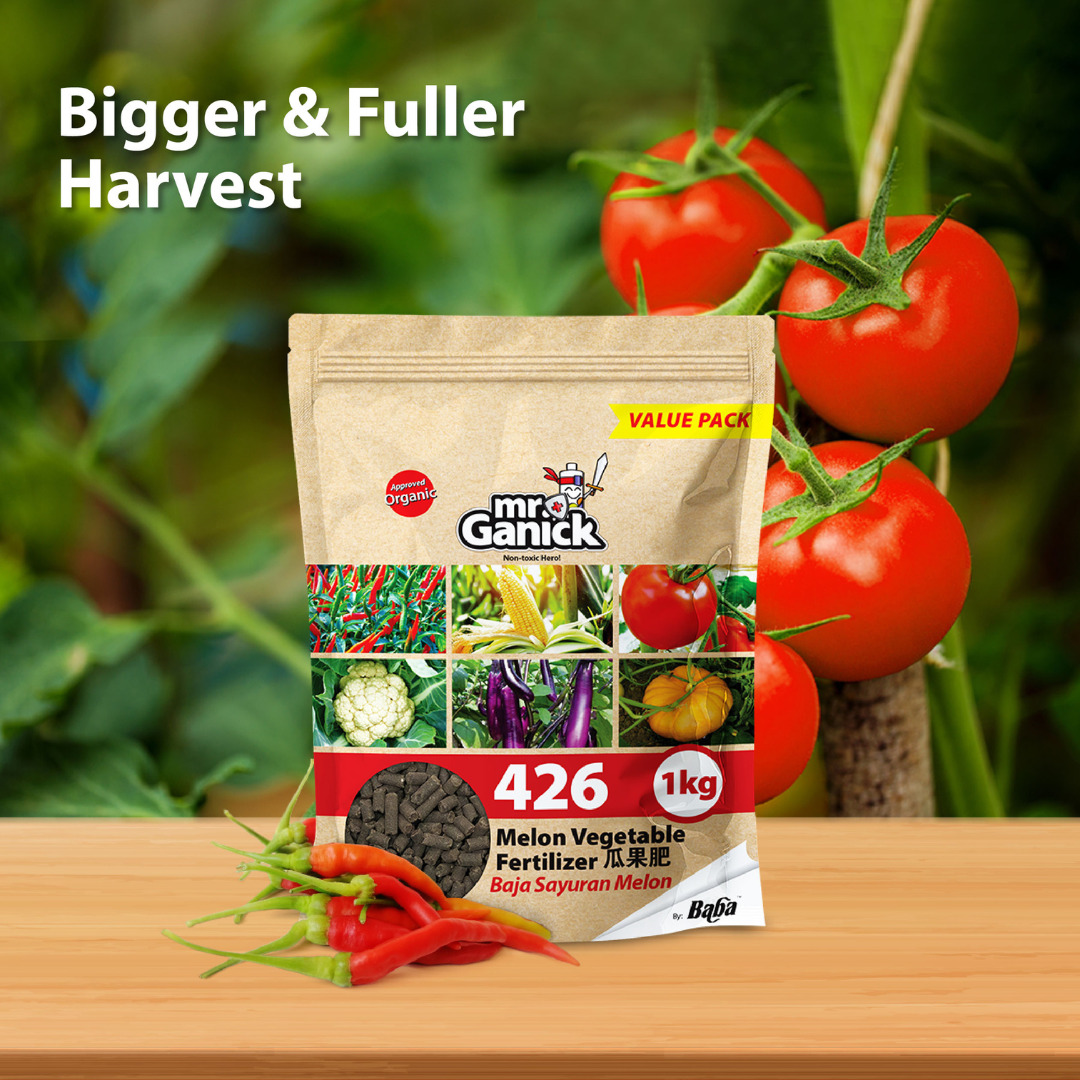
426 Organic Melon Vegetable Fertilizer
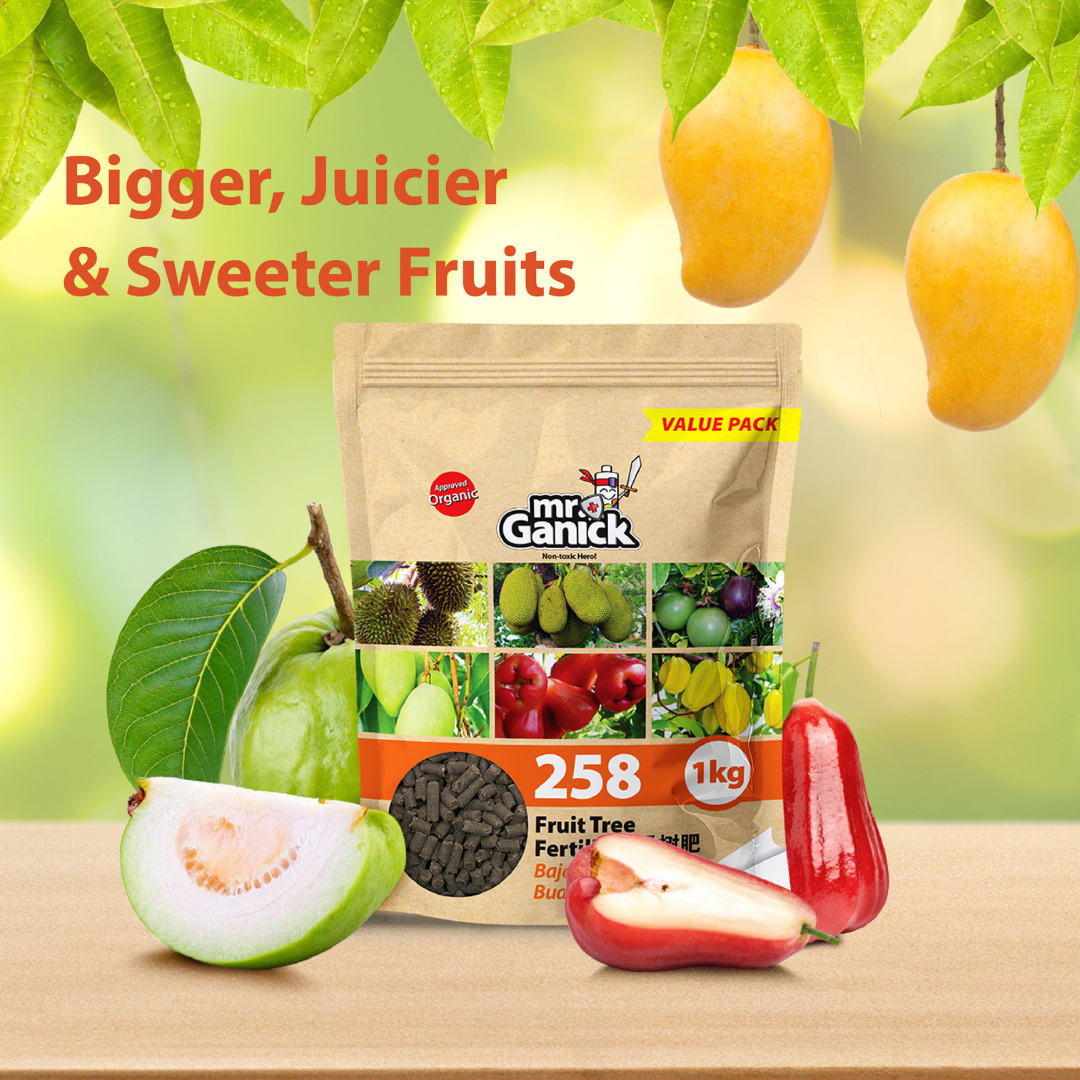
258 Organic Fruit Tree Fertilizer
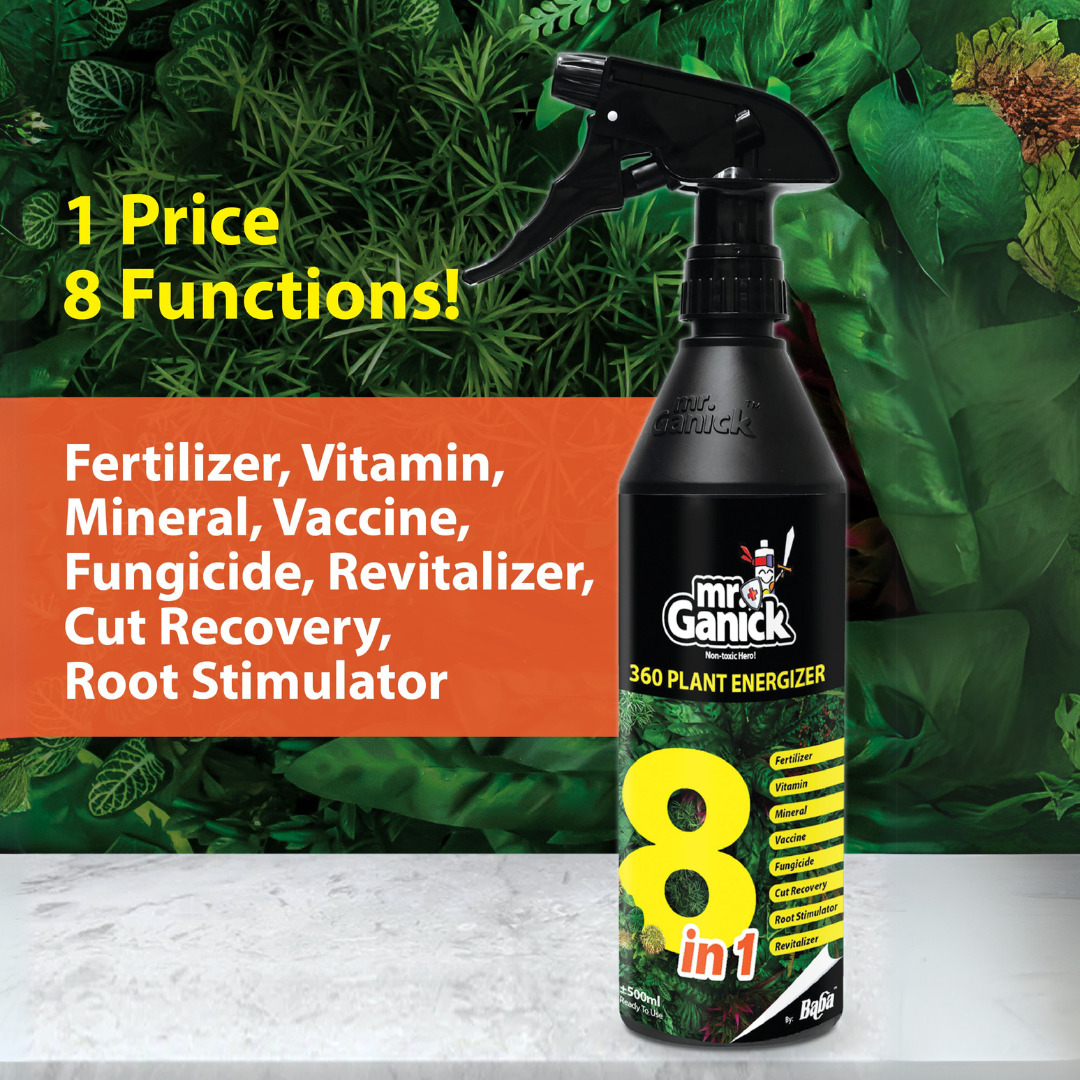
8-in-1 360 Plant Energizer
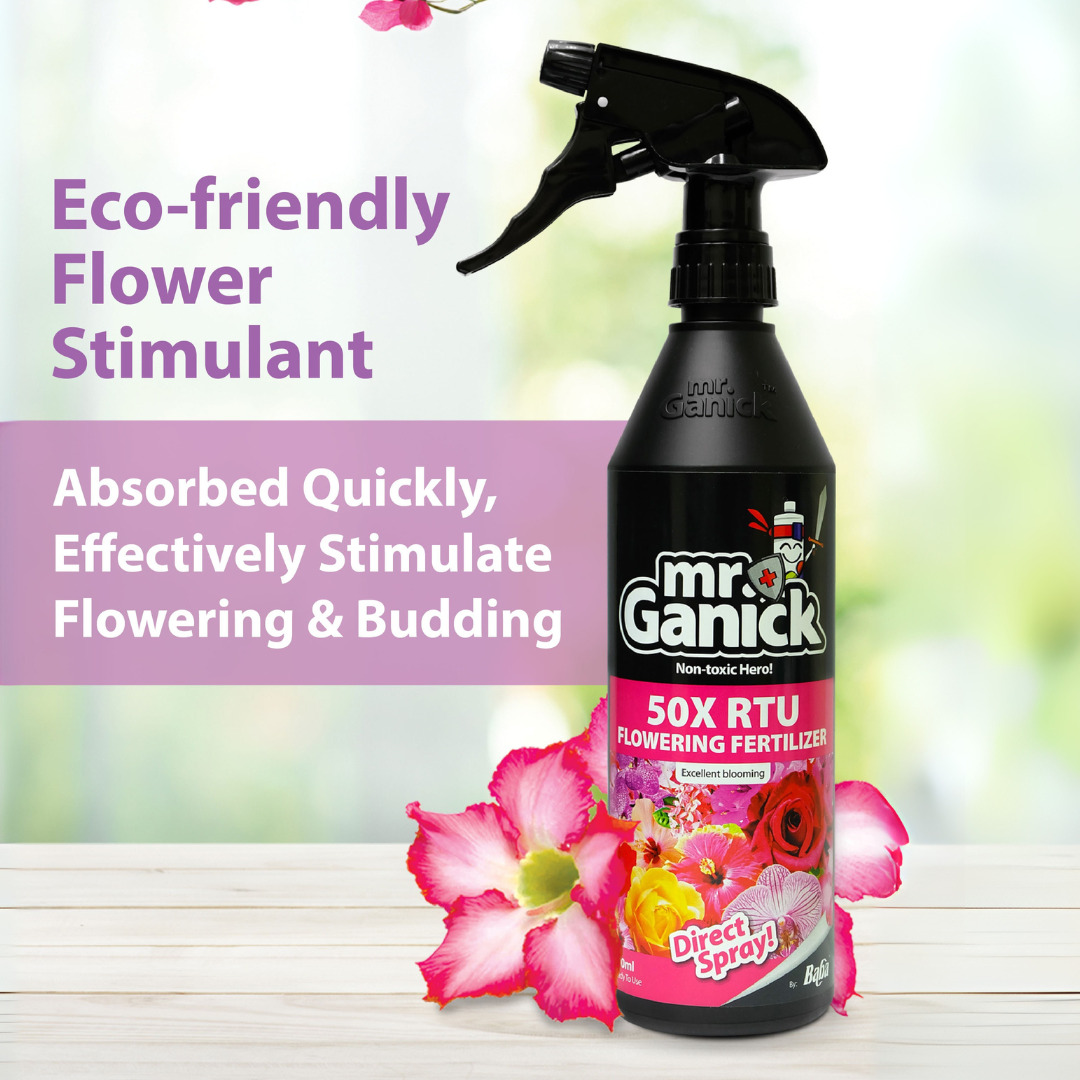
50x Flowering Fertilizer
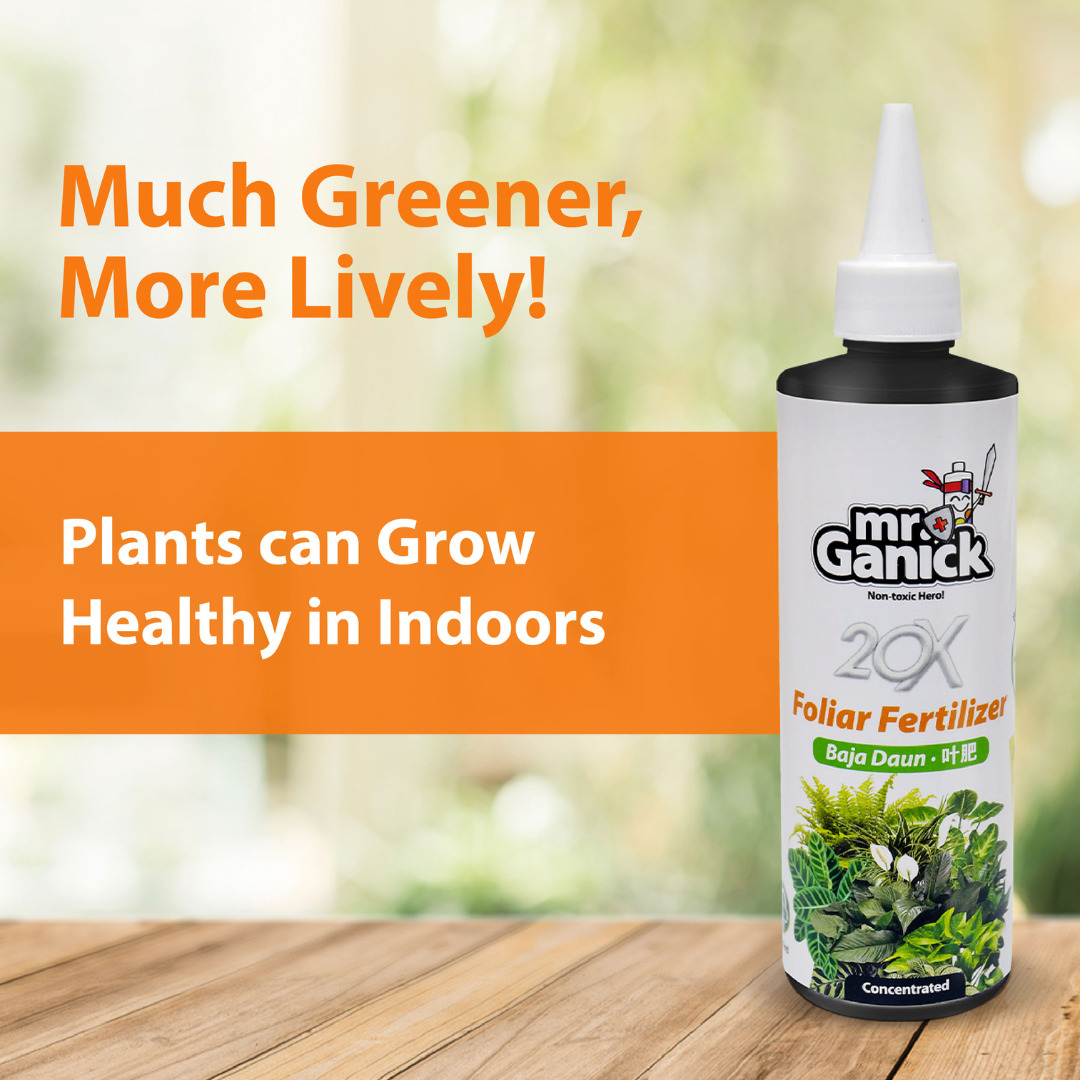
20X Foliar Fertilizer
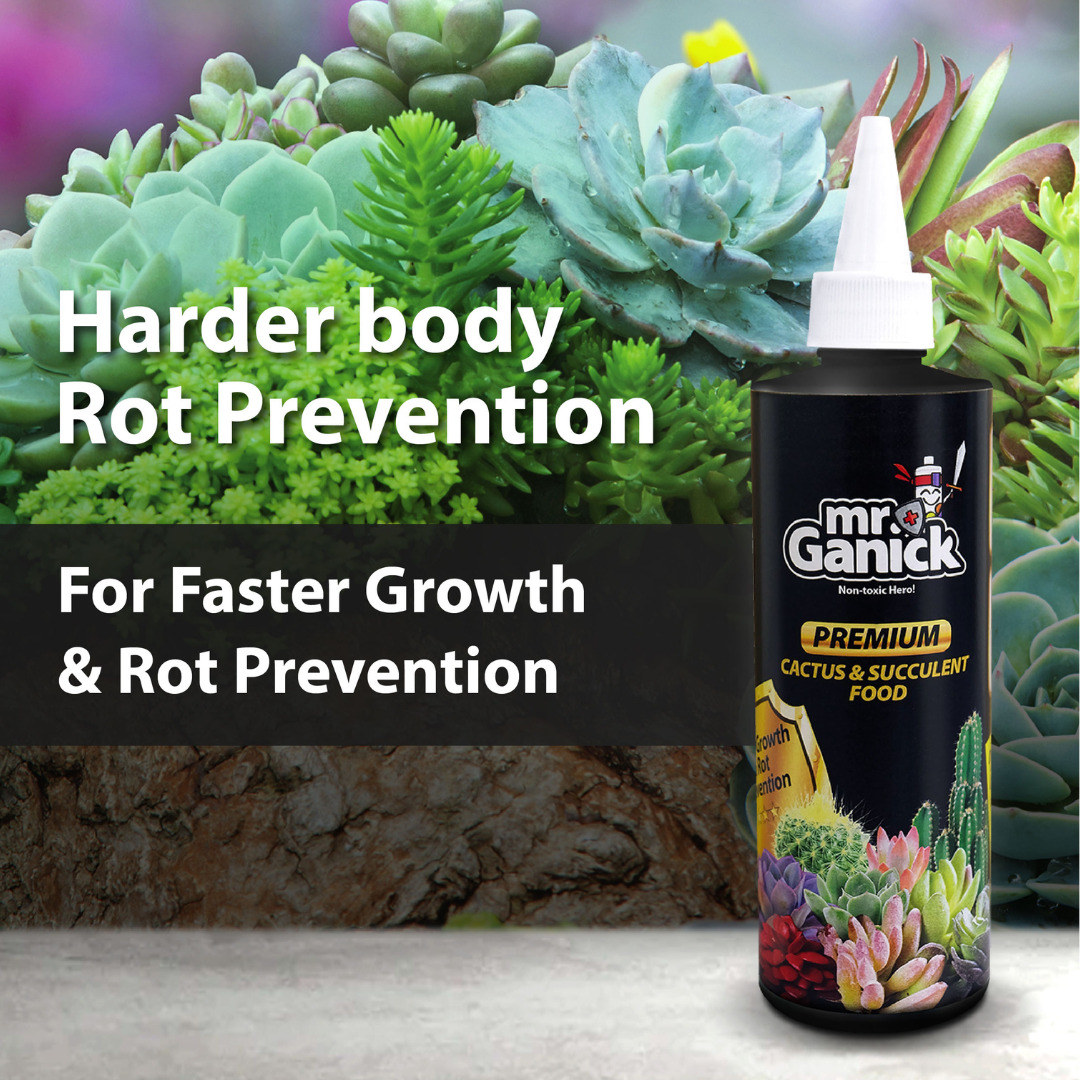
Premium Cactus & Succulent Food
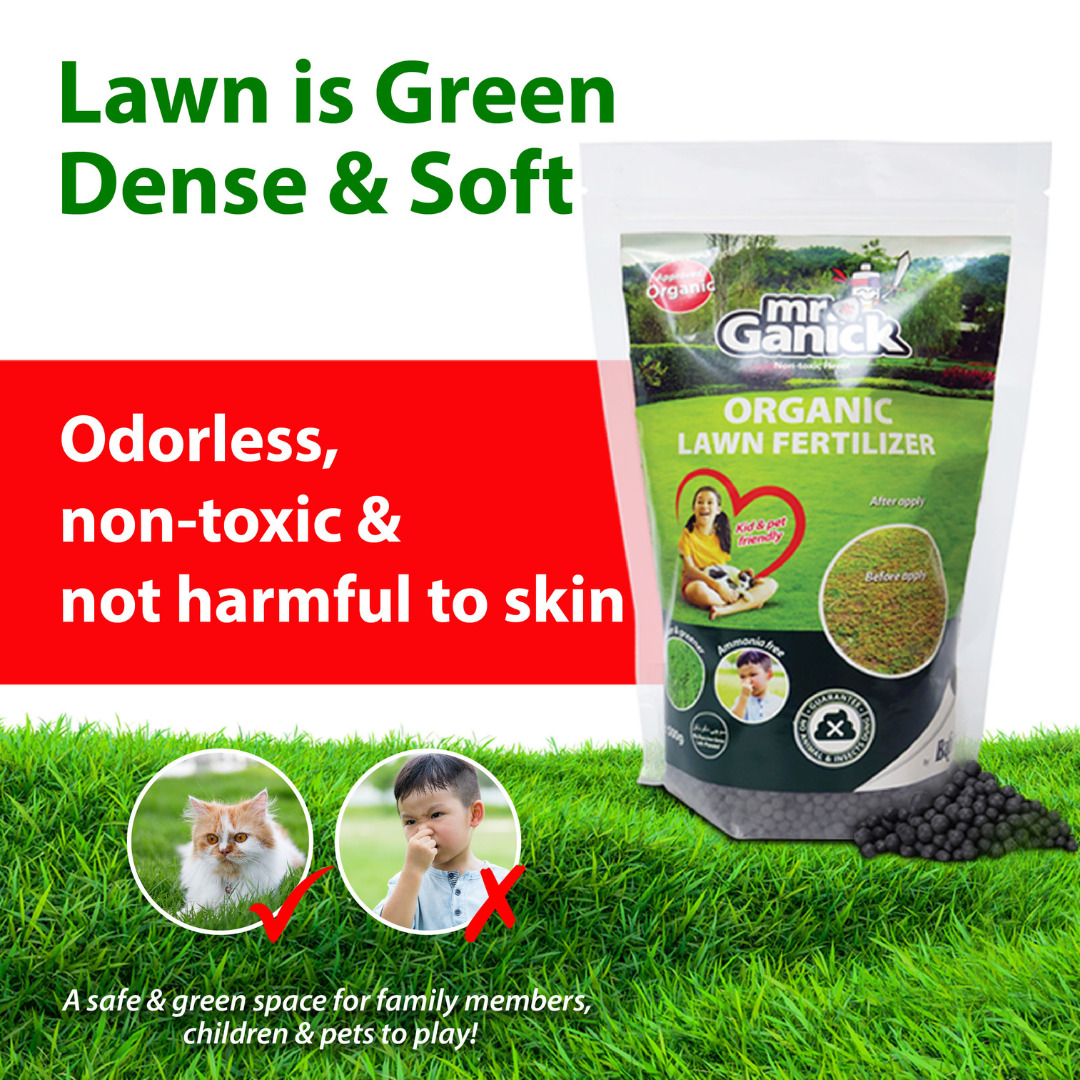
Organic Lawn Fertilizer
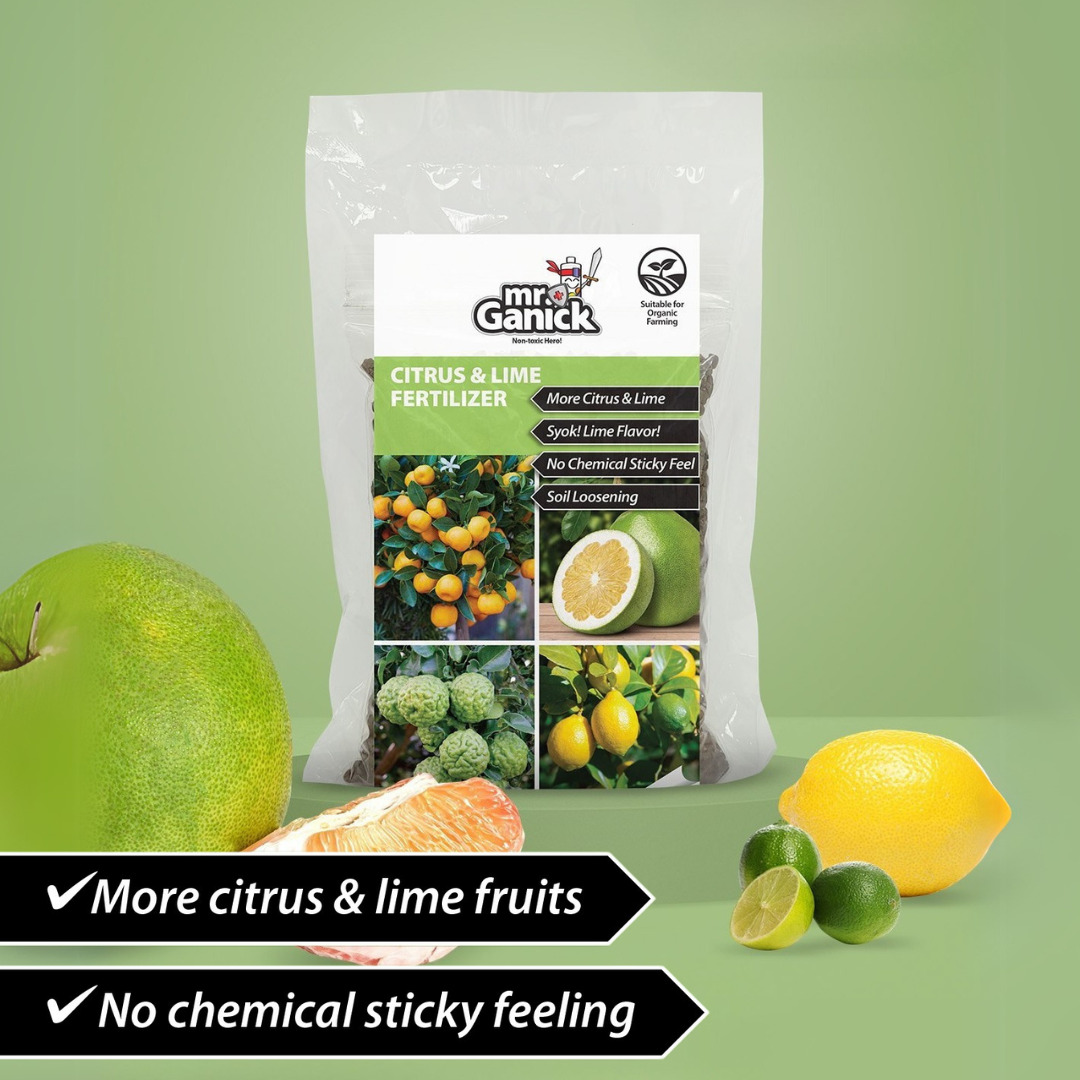
Citrus & Lime Fertilizer
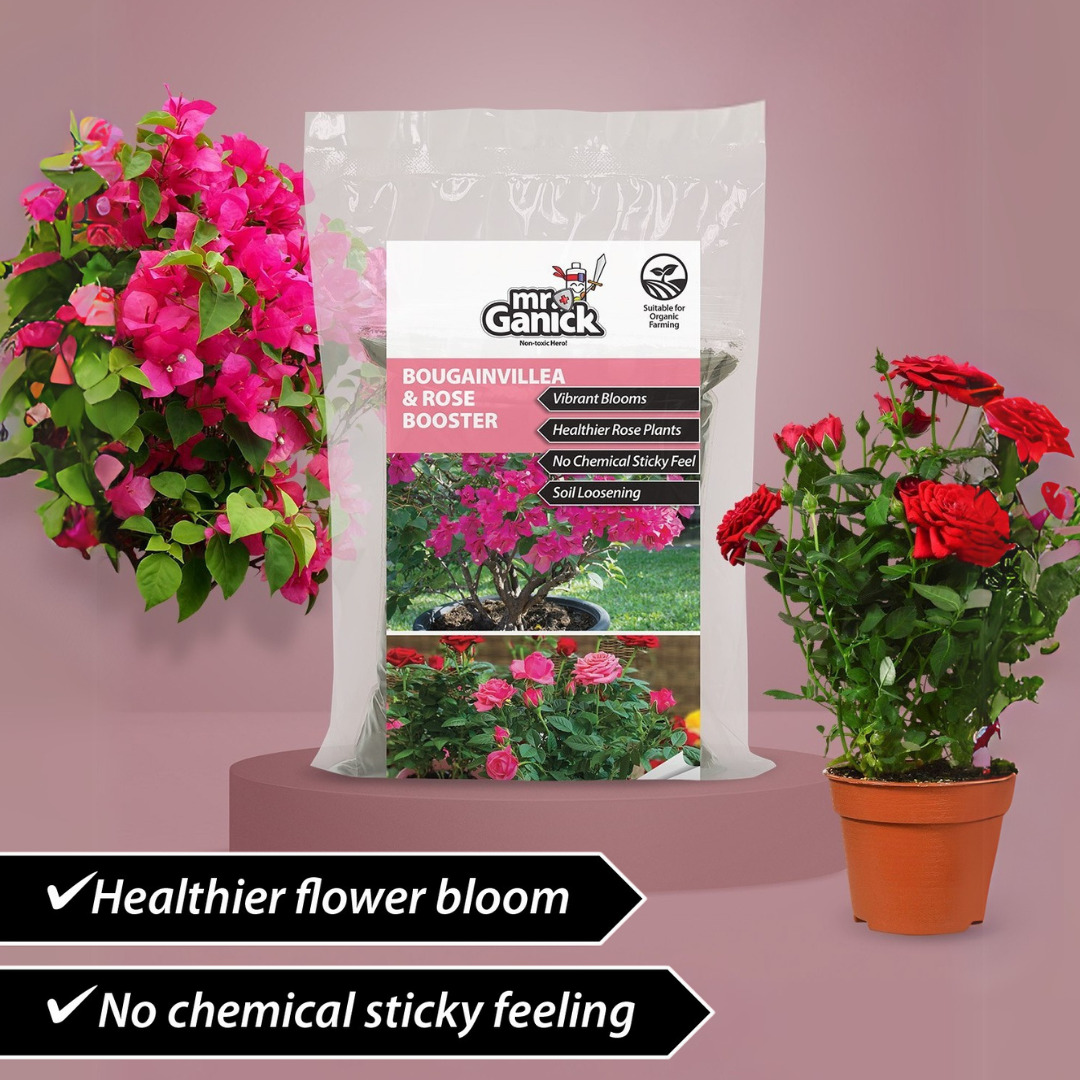
Bougainvillea & Rose Booster
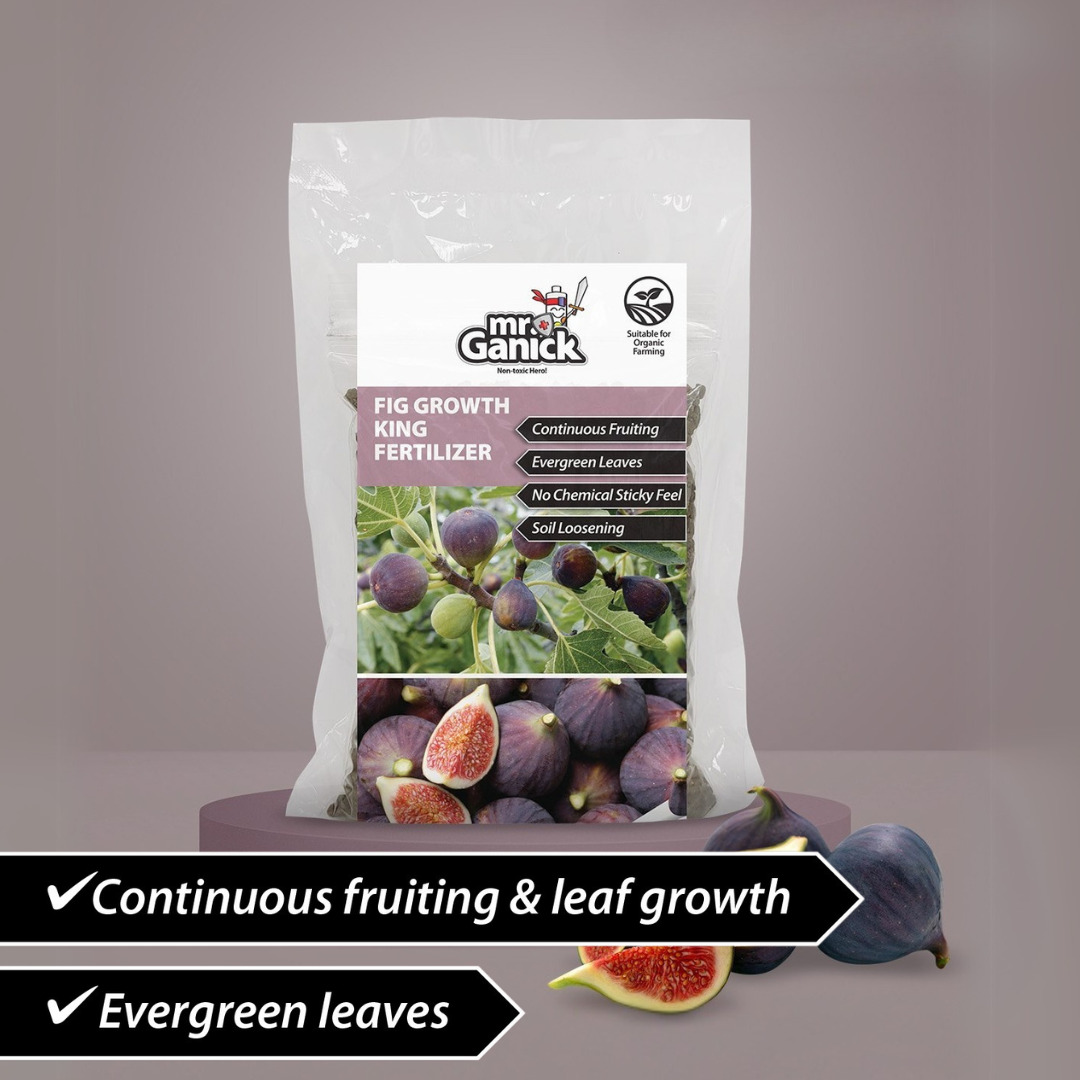
Fig Growth King Fertilizer
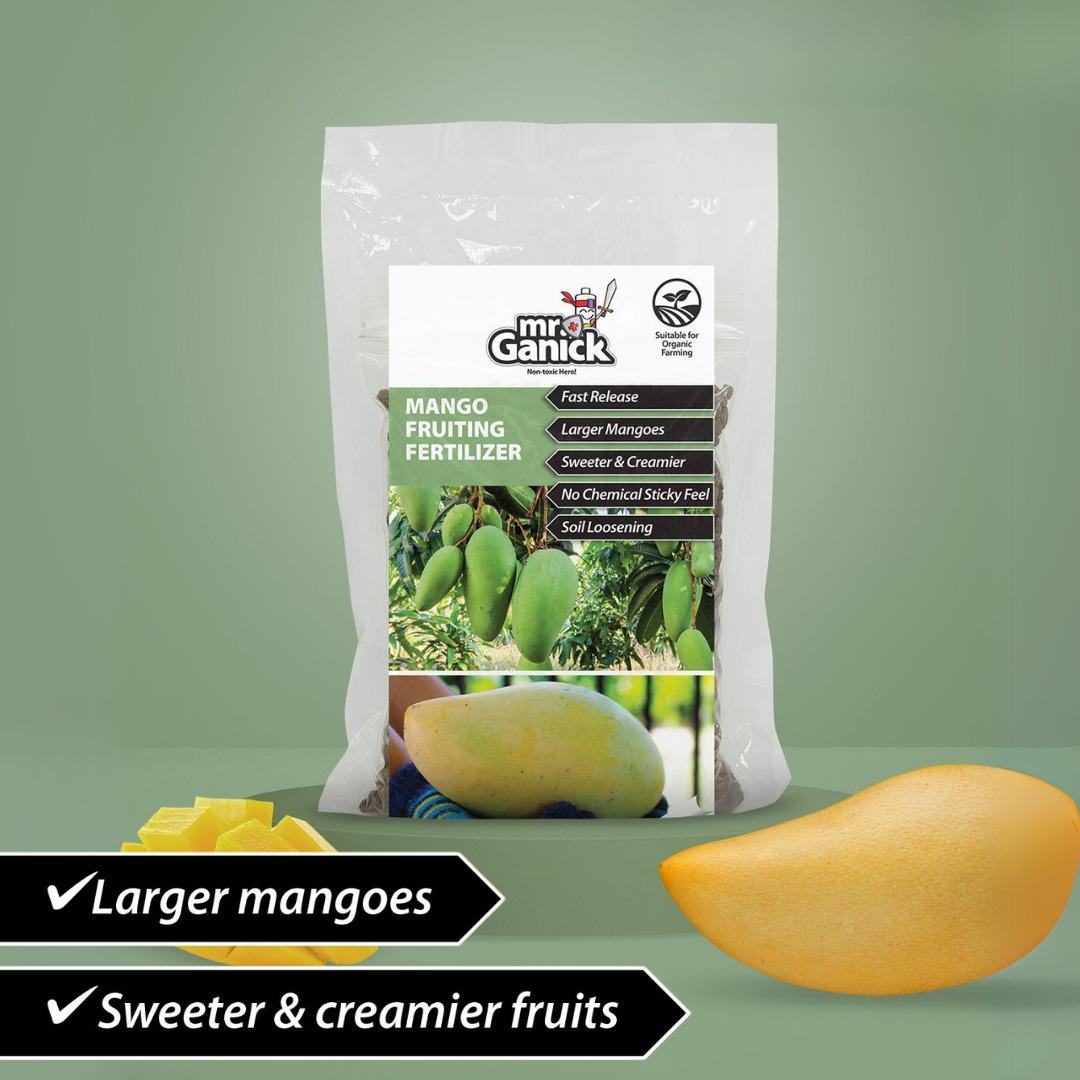
Mango Fruiting Fertilizer
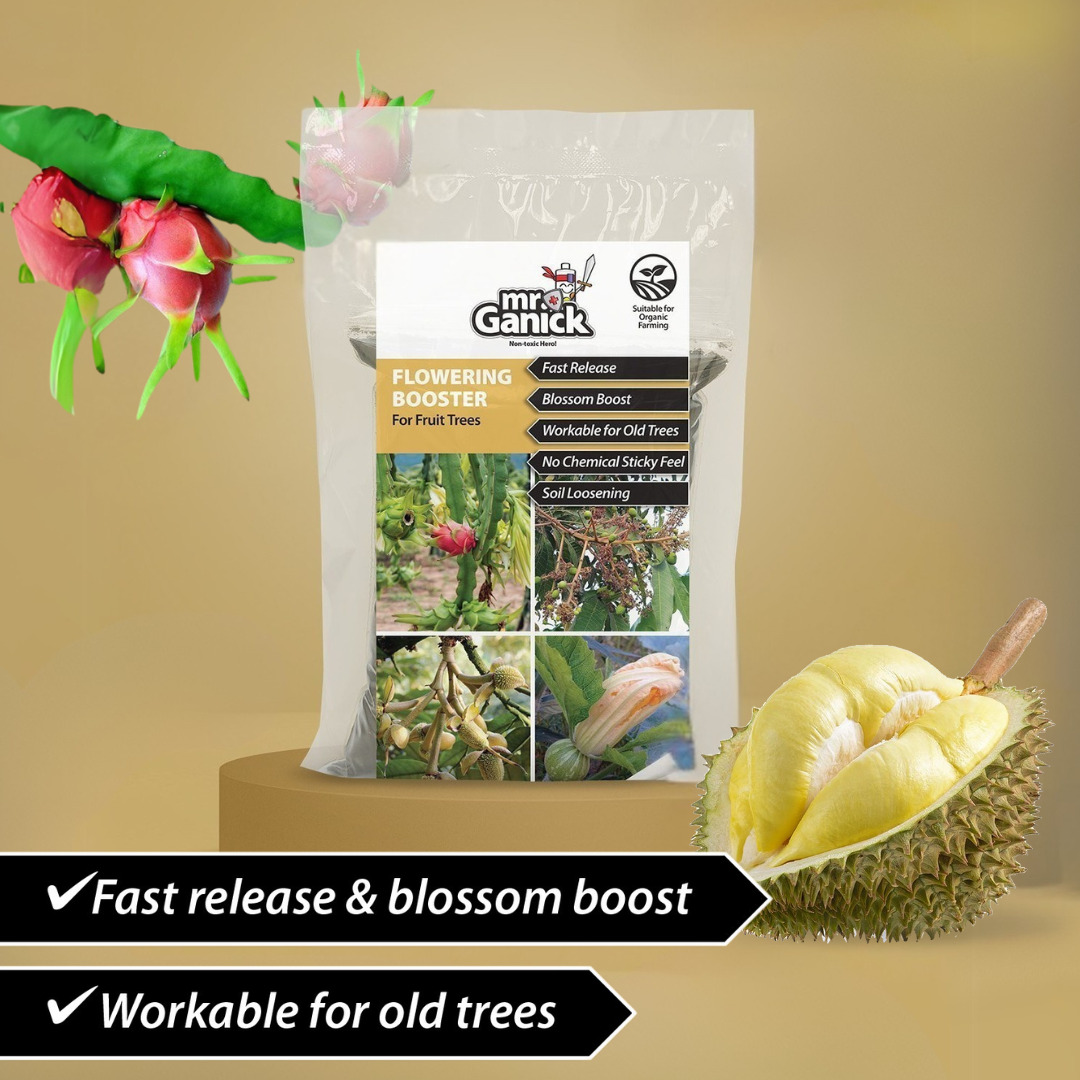
Flowering Booster
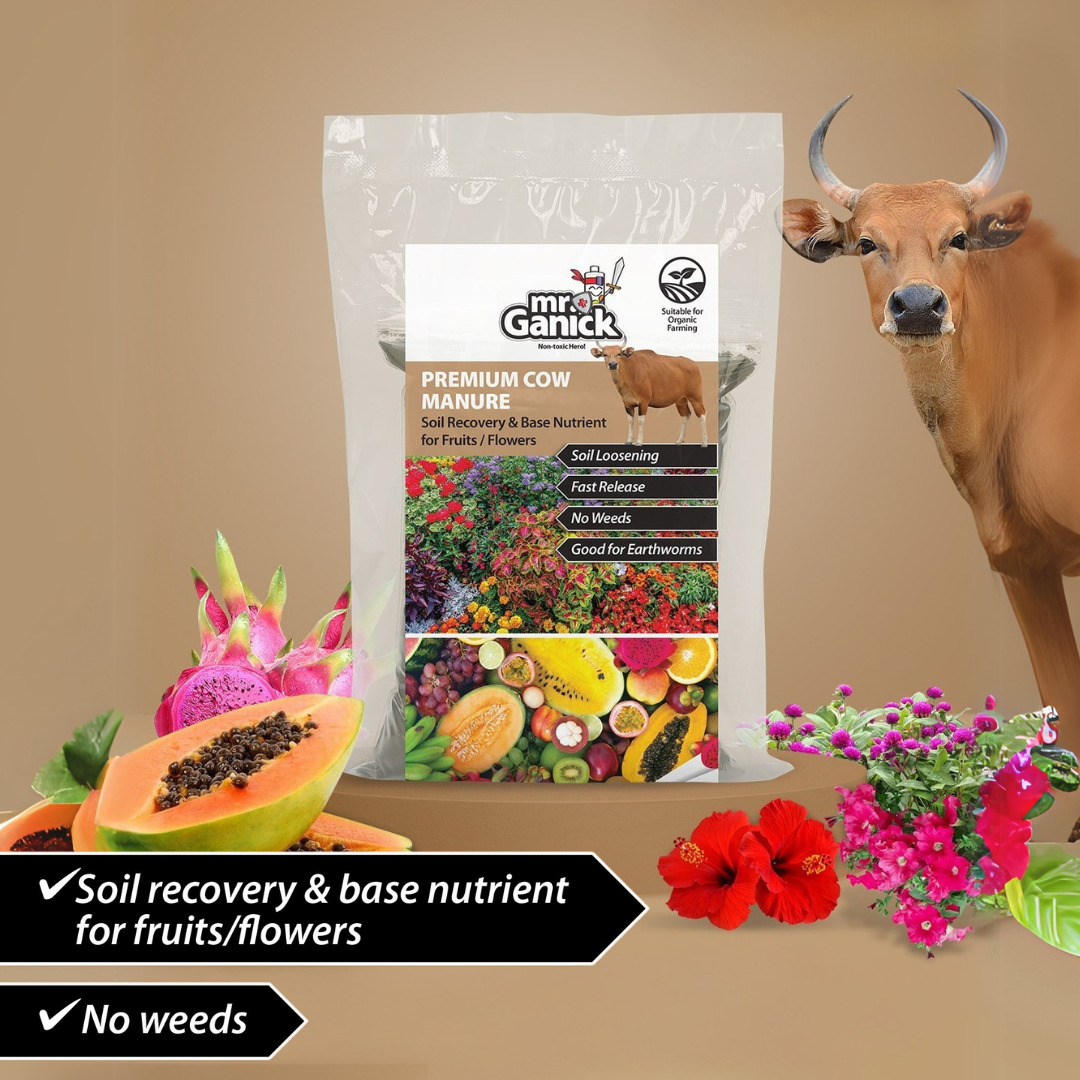
Premium Cow Manure
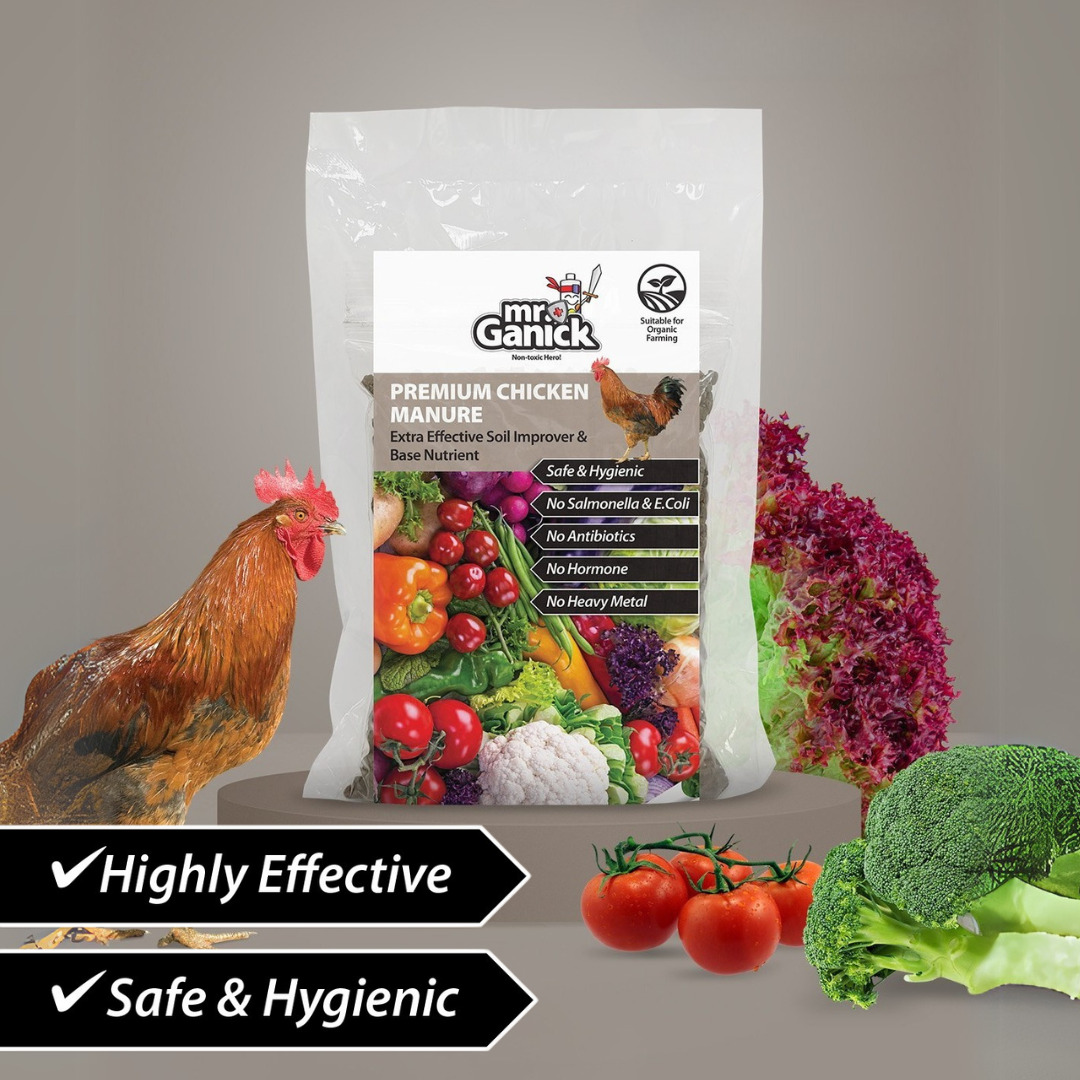
Premium Chicken Manure
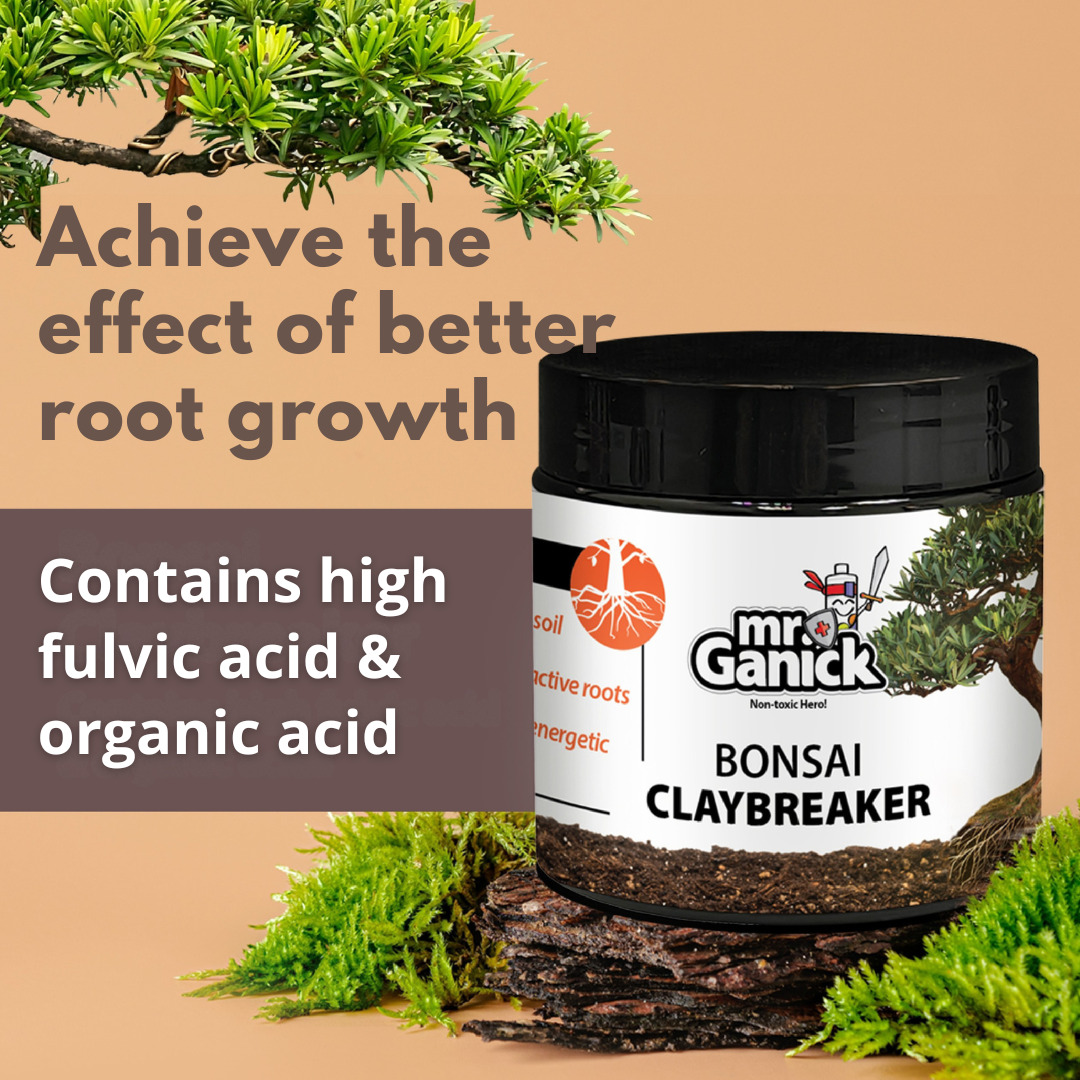
Bonsai Claybreaker

532 Organic Leafy Fertilizer

549 Organic Flower Bloom Fertilizer

426 Organic Melon Vegetable Fertilizer

258 Organic Fruit Tree Fertilizer

8-in-1
360 Plant Energizer
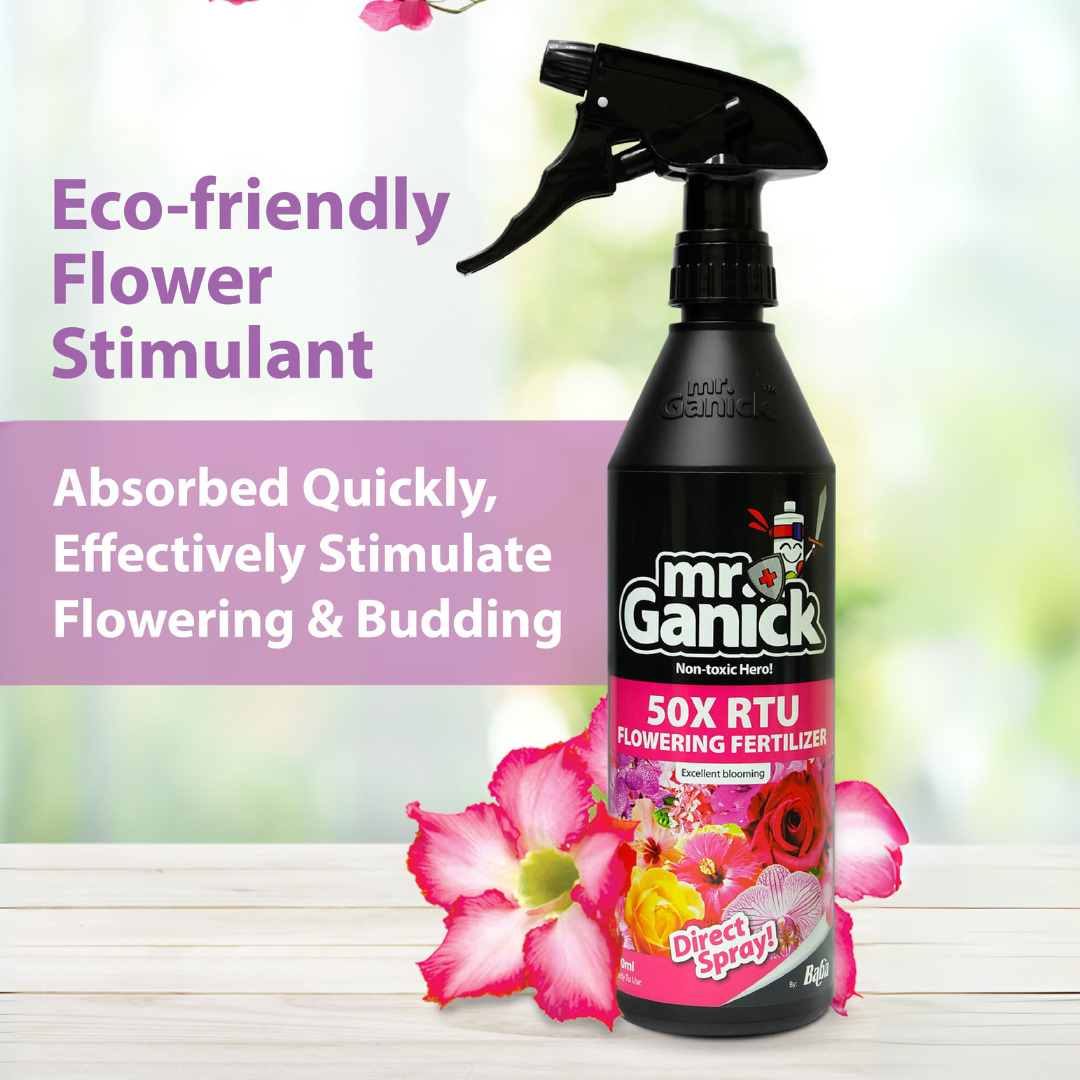
50x
Flowering Fertilizer

20X
Foliar Fertilizer

Premium Cactus & Succulent Food

Organic Lawn
Fertilizer

Citrus & Lime
Fertilizer

Bougainvillea & Rose Booster

Fig Growth
King Fertilizer

Mango Fruiting
Fertilizer

Flowering
Booster

Premium Cow
Manure

Premium Chicken
Manure

Bonsai
Claybreaker
Fertilizer 101: When, What, and How to Use It
for Healthy Growth
What do the numbers on the front of a fertilizer bag stand for?
The three numbers (like 5-3-2 or 2-5-8) represent the NPK ratio—which stands for Nitrogen (N), Phosphorus (P), and Potassium (K). These are the three main nutrients plants need:
- Nitrogen (N) helps with leaf and stem growth
- Phosphorus (P) supports root development and flowering
- Potassium (K) boosts overall plant health and resistance
For example, a 5-3-2 fertilizer has 5% nitrogen, 3% phosphorus, and 2% potassium. The right mix depends on your plant’s needs!
How do I know if my plant needs fertilizer?
There are a few signs your plant might be hungry for nutrients:
- Slow or stunted growth, even in good light
- Yellowing or pale leaves
- Fewer flowers or fruit than usual
- Soil that looks dry, compacted, or depleted
If it’s been a while since you last fertilized or repotted, your plant may have used up the nutrients in the soil. Fertilizing can help give it a healthy boost, just be sure to choose the right type for your plant.
How do I know which organic fertilizer is right for my plant?
The best fertilizer depends on what you’re growing:
- Leafy vegetables thrive with fertilizers high in nitrogen to support lush foliage.
- Flowering plants prefer formulas with more phosphorus, which helps boost blooms.
- Fruiting crops do well with a balanced NPK fertilizer. This fertiizer for fruiting supports both growth and fruit development.
What is the best time to fertilize plants?
Always follow the manufacturer’s recommended rates and application methods. Fertilize outdoor plants in the coolest part of the day, such as early morning or late evening, especially in hot summer weather. Always water in fertilizers well to distribute nutrients throughout the soil profile and to prevent burning.
What are the signs of over fertilizing?
Over fertilizing can harm your plants instead of helping them. Common signs include: brown or burnt leaf tips, yellowing leaves or leaf drop, white crust on the soil surface (excess salt buildup), wilting (even though the soil is moist), stunted growth or weak roots.
If you notice these symptoms, stop fertilizing, flush the soil with clean water, and let your plant recover. Always follow the recommended dosage on the label, more fertilizer doesn’t always mean faster growth.